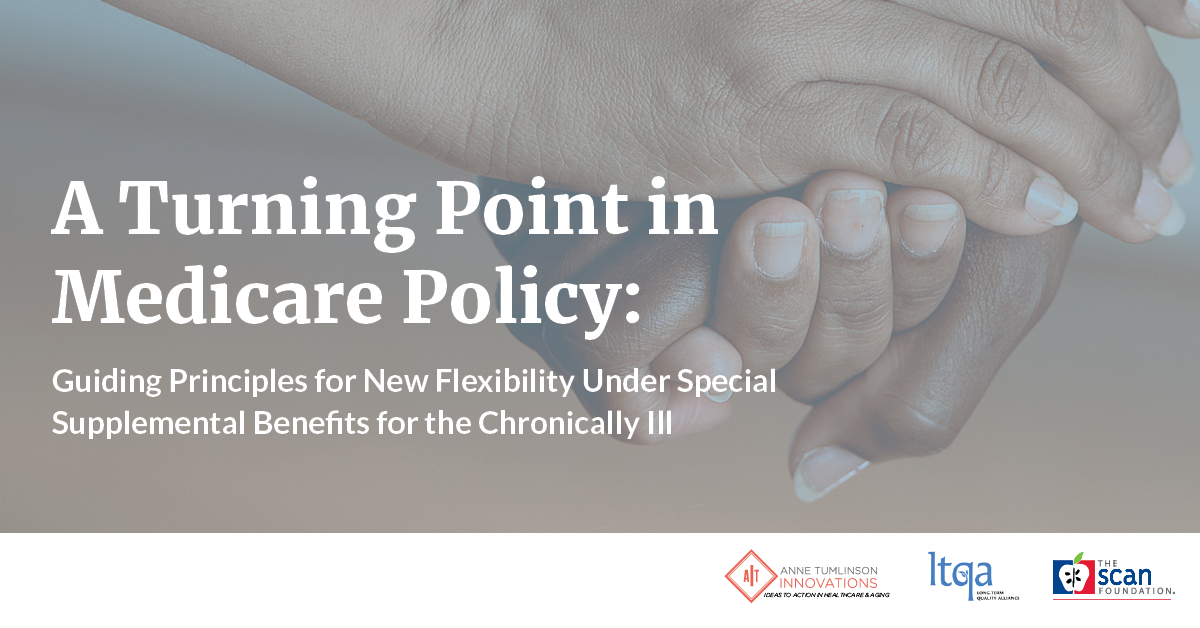July 25, 2019
Older adults with complex care needs often require non-medical services and supports to complete many daily activities—things like transportation to adult day care centers, retrofitting a home for wheelchair use, and support for caregivers, among others. In January 2020, these benefits can be covered by Medicare Advantage plans to help meet individual needs and save chronically ill older adults out-of-pocket costs.
The Long-Term Quality Alliance and Anne Tumlinson Innovations convened a working group of national experts on Medicare Advantage and long-term services and supports to develop guiding principles for CMS and Medicare Advantage plans to help effectively create and implement these new benefits. Through a consensus process, this working group developed our new report, A Turning Point in Medicare Policy: Guiding Principles for New Flexibility Under Special Supplemental Benefits for the Chronically Ill (SSBCI).
Resource Links
- Guiding Principles Report
- National MLTSS Health Plan Association: Perspective on Guiding Principles for SSBCI
Related Media
- AIS Health: Working Group Recommends New SSBCI Be Clear, Equitable
- FierceHealthcare: Why supplemental benefits in MA mark a ‘turning point’ for Medicare policy
- McKnight’s Senior Living: Providers should be ‘actively involved’ as some Medicare beneficiaries begin receiving nonmedical benefits, experts say
- n4a Aging and Disability Business Institute Blog: 2020 Final Call Letter Offers Guidance and Structure for Medicare Advantage Supplemental Benefits
Acknowledgements
This project was supported by a grant from The SCAN Foundation – advancing a coordinated and easily navigated system of high-quality services for older adults that preserve dignity and independence.


